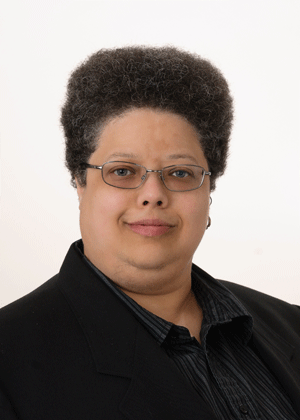
It could be last call for the Toronto version of Lawyers Feed the Hungry.
 Convocation agreed after a lengthy debate Jan. 28 in a majority vote to bolster the long-running charitable initiative with a two-year, $200,000 investment. The money will fund a stakeholder management co-ordinator, dedicated to supporting all the Lawyers Feed the Hungry programs in Ontario with a special focus on creating a self-sustaining model for Toronto within two years.
Convocation agreed after a lengthy debate Jan. 28 in a majority vote to bolster the long-running charitable initiative with a two-year, $200,000 investment. The money will fund a stakeholder management co-ordinator, dedicated to supporting all the Lawyers Feed the Hungry programs in Ontario with a special focus on creating a self-sustaining model for Toronto within two years.
If it cannot become self-sustaining after two years, some benchers say it will be time to consider ending the Toronto program or finding new charitable avenues to pursue.
“Of course, this is a good idea, it’s motherhood, apple pie or motherhood and poutine, however we say it in Canada . . . but is this the best way to spend the money?” said Anne Vespry to Convocation during the debate.
She and several bencher peers said they support the concept and ideals behind providing food to the poor, but she has concerns that charity is not a direct mandate of the Law Society of Upper Canada, and she wondered if there were better ways to provide the services in Toronto without the added expenditure.
Vespry added that in terms of the process requesting the funding, the matter should have come about during budget discussions. She had concerns supporting the expenditure without a proper review of the program’s efficiency or alternative measures that might cost less but fill the same need.
“It’s not because I think this is a bad charity or I think this is not a worthwhile initiative; my concern is with the evidence on which we have to make this decision, or I should say, the lack of evidence,” said bencher Barbara Murchie. “I don’t believe that the law society has the expertise to take on this role and I don’t think there’s any evidence we do, and secondly, there’s no evidence that this proposal is the best choice; there’s no evaluation of the efficiency of the program or how we deliver it.”
Launched in 1998 and funded primarily through donations to the Law Society Foundation, the program has been facing a major financial shortfall for some time. Foundation chairman and bencher Ian Hull pleaded with Convocation in late fall to support the program in Toronto or it may be lost, facing a deficit of about $150,000 last year.
Costs to operate the program in 2015 for Toronto alone exceeded $400,000. The LSUC provides staff volunteers to help with the meals, space at Osgoode Hall, and administrative support to keep operating costs down. In presenting a motion Jan. 28 to hire the co-ordinator, audit and finance committee co-chairman Peter Wardle explained having a full-time dedicated staffer at a cost of $100,000 per year would ease that in-kind, volunteer pressure put on staff.
Providing administrative support to the other programs, the main goal will be to create a self-sustaining model in Toronto. The money would support the position, the marketing and promotional efforts to raise awareness, and, hopefully, a continuing stream of funds to sustain the program.
“Lawyers Feed the Hungry has a real need for professional assistance in fundraising and stakeholder management co-ordination,” Wardle said. “This is a two-year commitment, it’s not an indefinite. The question in my mind is not whether we continue to support Lawyers Feed the Hungry, it’s in what fashion.”
When the program began, volunteers provided hot meals once a week in Osgoode Hall’s cafeteria. That blossomed over the years to four hot meals each week all year with about 3,500 people served each month in Toronto. All told, including Lawyers Feed the Hungry programs in Ottawa, London, and Windsor, Ont., the programs have served hot meals to more than three million people since the beginning and average about 100,000 people per year. Of that 100,000 annual average, Hull said about 60,000 people come through Toronto’s program.
But despite being the busiest of the programs, Toronto’s is also the one that’s struggling the most financially. It is also the only Ontario program that actively serves meals, rather than purchasing food for other organizations that feed the poor.
Some benchers said Toronto’s version should consider pulling back from serving and support other programs.
Wardle explained that as the co-ordinator position was not part of the strategic plan and budgetary process for 2016, the first year’s $100,000 will come from the LSUC’s approximately $1 million contingency fund and the second year will then be included in the regular budget stream.
“I really do firmly believe we can do this in two years; we are in this with both feet — we just need to give this one good college try,” Hull said.